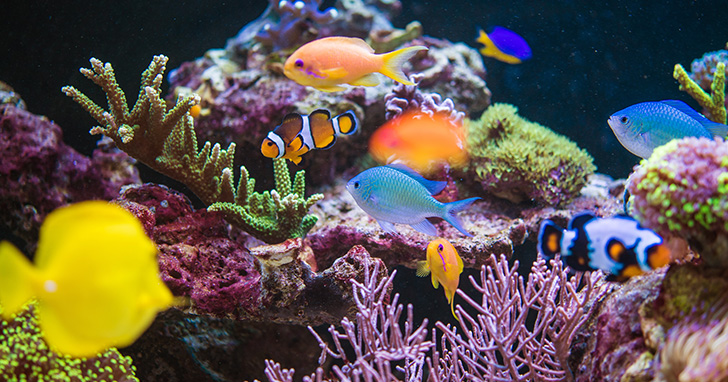
Expert Only Saltwater AquaristIs It Within Your Reach? What makes an aquarium hobbyist an expert? Do you see “expert only” aquatic life on-line for sale and scroll past? If you are interested in becoming an expert aquarist, this article is for you! We have compiled information to help you recognize what sets experts apart from other aquarium hobbyists, as well as what is needed to achieve expert aquarist status. What are characteristics of expert aquarists? An aquarist who provides expert care for their aquatic life is nothing more than a beginner hobbyist with experience obtained over the years. What can you do to evolve into an expert? The most important quality is patience. Believe it or not, many experts don't have a “finished” aquarium setup. Many believe their aquarium is always in flux, essentially a work in progress they are improving on every day. They also realize the need to follow through on the work necessary in order to be successful. Another characteristic they exhibit is the fact that they prepare themselves. They conduct research before each addition to find out the requirements of the aquatic life they are hoping to add and are truthful in asking themselves if they are capable of making the necessary commitment to care for their new fish, invertebrate, or coral. They recognize that mistakes are costly and can be detrimental to the aquatic life they purchase. Because of this, they continue to expand their knowledge base and are diligent in maintaining the right environment and providing the right foods to sustainably maintain the aquatic life under their care. Do you have to have the most expensive equipment to be an expert? No, that is not necessary. Experts make investments in high quality equipment to get reliable results, minimizing fluctuations in the care they provide their stock. They resolve to purchase the best equipment they can afford, maintain it, and upgrade if needs dictate when the time is right. However, if upgrading equipment removes some of the manual processes (like app-enabled equipment functions) or has time-saving benefits, they may upgrade. Benefits expert aquarists can offer their aquatic life As experience grows, aquarists can minimize errors that cost money or result in loss of life of their pet. Expert aquarists are committed to learning from their mistakes to build a wealth of information from which to draw on in the future. Why do some fish require an expert owner? When fish are labeled as those that are appropriate for “experts only”, the majority of the time this is because of their feeding habits or diet requirements. This includes not only providing fish the right foods but fed at the correct frequency. Special processes during acclimation may be required, and some fish require special consideration throughout their lives. LiveAquaria® offers a host of saltwater fish that require the care of an expert aquarist. A select few will be discussed below. Fish Labeled Expert Only Due To Eating Requirements 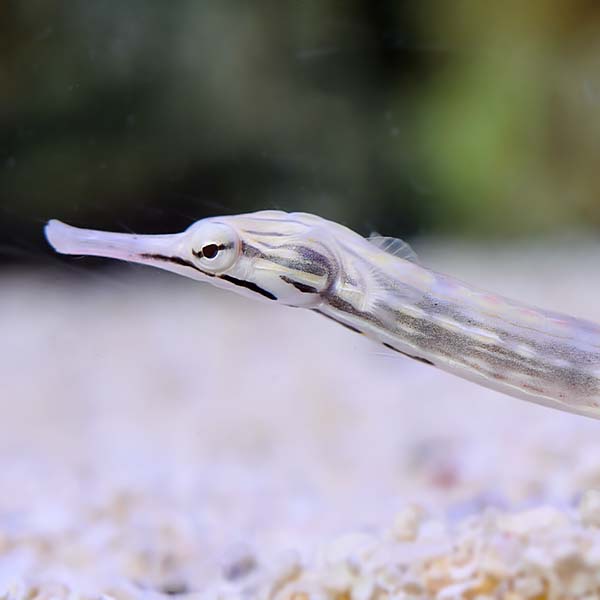
Dragonface Pipefish (Corythoichthys sp.) - The Dragonface Pipefish is among the hardiest Pipefish, but we still suggest expert only aquarist care due to its unusual feeding requirements. It normally prefers to eat only live copepods in a mature reef aquarium with plenty of live rock or macroalgae. An ideal diet to start this fish on is Nutramar Tigrio Bottled Live Copepods, and vitamin-enriched live baby brine shrimp. However, live baby brine should not make up the majority of its diet. Over time, the Dragonface Pipefish may become accustomed to eating frozen Cyclops, small Mysis, and Nutramar Ova. We recommend AlgaGen Tisbe biminiensis. 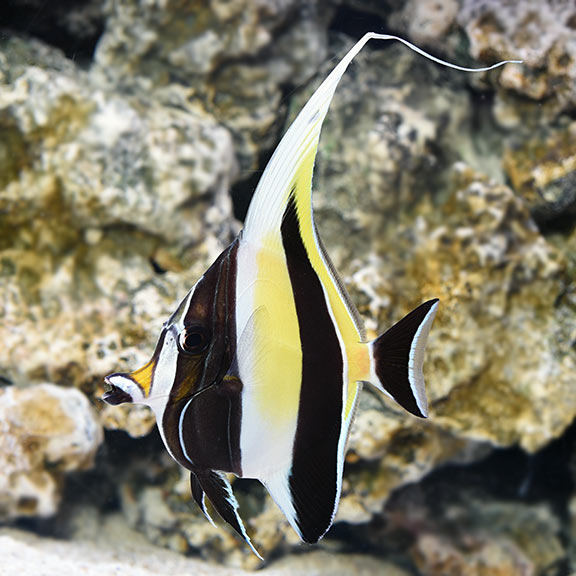
Moorish Idol (Zanclus cornutus) - The Moorish Idol is a very difficult fish to feed. Live rock with large amounts of algae and sponges on which it can feed will help it acclimate. Then hobbyists can try offering a varied diet of finely chopped meaty items, Mysis shrimp, vitamin-enriched brine shrimp, Spirulina, and algae. It should be fed several times a day. For all but the most expert hobbyist, it is better admired in the ocean or in a public aquarium rather than in a home tank. 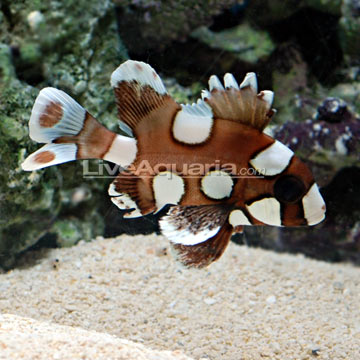
Spotted Sweetlips (Plectorhinchus chaetodonoides) - When first introduced into the aquarium, live saltwater feeder shrimp should be used to entice this fish to eat. Once it has acclimated, most marine carnivore preparations will be acceptable. A word of caution: If placed in a reef aquarium, the Spotted Sweetlips will eat smaller crustaceans, Brittle Sea Stars, and small Snails (as well as smaller fireworms and polychaete worms). 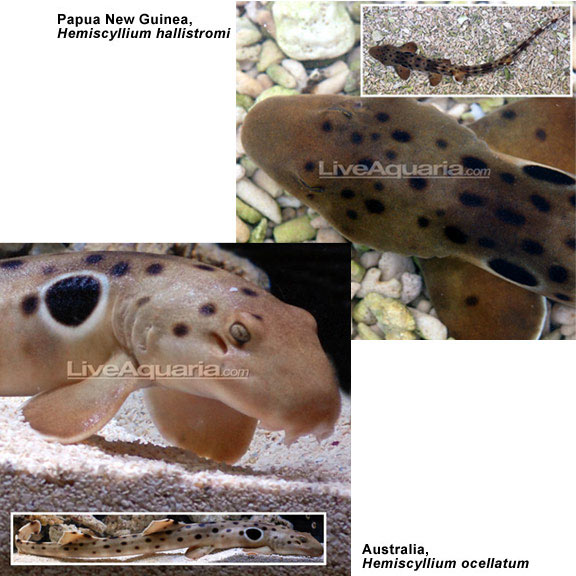
Epaulette Shark (Hemiscyllium ocellatum) - A tank of 360 gallons or larger with a smooth sand substrate is necessary to house the Epaulette Shark, so it doesn't scratch its abdomen, which could lead to infection. The Epaulette Shark will eat invertebrates in the aquarium, and will prey upon small sleeping fish at night, when it is most active. To entice it to eat during acclimation, it can be fed small pieces of cleaned squid or live saltwater feeder shrimp. Then aquarists can move on to feeding it shrimp, scallops or pieces of fresh marine fish. The Epaulette Shark should not be exposed to copper-based medications. 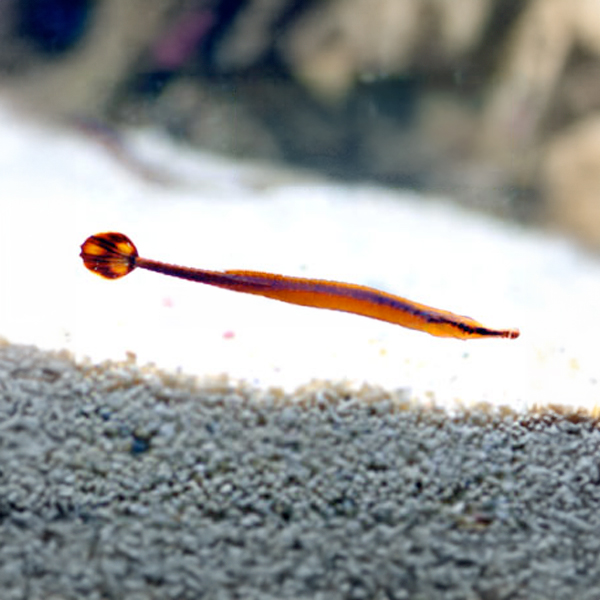
Bluestripe Pipefish (Doryrhamphus excisus) - This saltwater fish is among the hardiest Pipefish but is difficult to keep due to its small size and unusual eating requirements. The Bluestripe Pipefish normally prefers to eat only Cyclops, small Mysis, and Nutramar Ova. We recommend feeding them AlgaGen Tisbe biminiensis. Saltwater Fish That Require Expert Care Because They Are Venomous Some aquatic life are venomous and someone with extensive knowledge is needed to care for them in order to prevent injury. 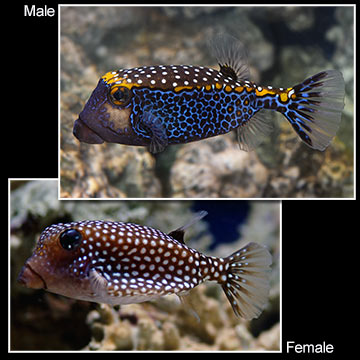
Boxfish (Ostracion meleagris) - Boxfish are difficult fish to keep in the aquarium setting by any other than the most experienced aquarist. They should be housed in an aquarium with at least a 180 gallon capacity. Use caution if placing the Boxfish in a reef tank as they will often nibble at tubeworms. When stressed, the Boxfish releases a poisonous substance, called Ostracitoxin, from its mucous glands, which can rapidly and lethally affect other fish in the aquarium. 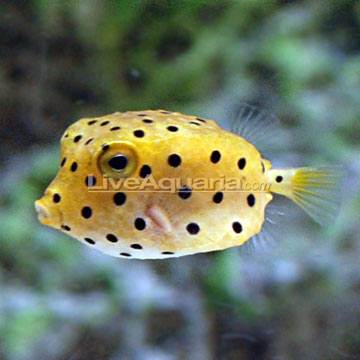
Cubicus Boxfish (Ostracion cubicum) - Specifically, the Cubicus Boxfish is a difficult fish to keep in the aquarium setting by any other than the most experienced aquarist. It requires a minimum tank size of 125 gallons. When stressed, the Cubicus Boxfish releases a poisonous substance, called Ostracitoxin, from its mucus glands, which can rapidly and lethally affect other fish in the tank. In addition, because their body is rigid, it is hard to notice if the Cubicus Boxfish is underfed. Its boxy shape also makes it difficult for this fish to swim upstream or against even moderate water flow. 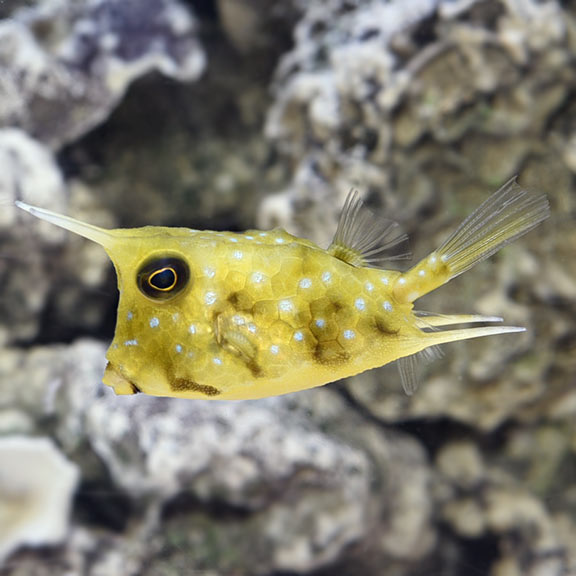
Longhorn Cowfish (Lactoria cornuta) - When possible, the Longhorn Cowfish should be the first fish introduced in the tank. It is intolerant of other Longhorns, so keep it in a large tank with some live rock for algae scraping. Use caution if placing the Longhorn Cowfish in a reef tank as it may nibble on tubeworms. When properly housed, the Longhorn Cowfish is long-lived. Similar to Boxfish, the Longhorn Cowfish's skin is poisonous and, when threatened, it will release a toxin lethal to other tank members, including other Longhorns. Saltwater Fish With Unique Needs That Make Them Expert Only Some aquatic life requires knowledge of personal requirements and if they are unmet, could cause demise for the animal. Let us explore some of these fish. 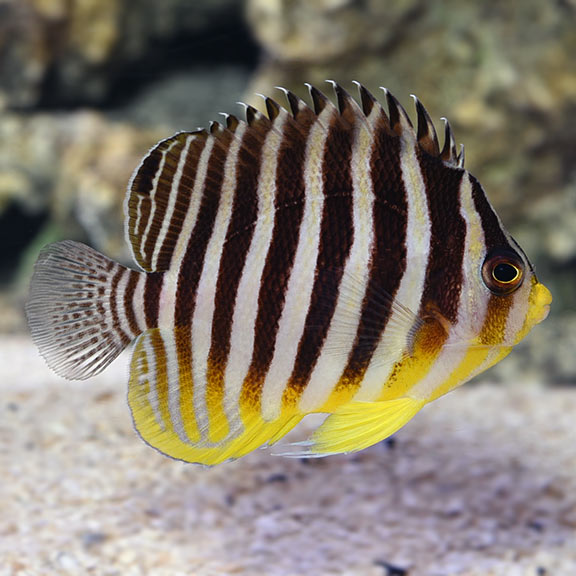
Multibar Angelfish (Paracentropyge multifasciata) - The Multibar Angelfish can be a difficult fish to keep because it does not thrive in bright display aquariums. It is shy and will seek out dark areas in the aquarium in which to hide. Bicolor Cleaner Wrasse (Labroides bicolor) - The Bicolor Cleaner Wrasse is notoriously difficult to maintain in a home aquarium as it has highly specialized feeding requirements. In the wild, it feeds almost exclusively on the parasites it removes from other fish, so it can be challenging to provide adequate nutrition in captivity. This species is recommended only for expert aquarists who have the resources and experience to meet their demanding care. I word of caution: the Bicolor Cleaner Wrasse can inadvertently remove scales from fish they are cleaning. Saltwater Fish That Require Expert Care Because They're Susceptible To Disease Some fish are very susceptible to disease. An expert should be well prepared to take on the challenge of these fish in order to keep them safe and healthy. In order for some aquatic life to strive, they require pristine water parameters and cannot handle even small fluctuations in water quality. 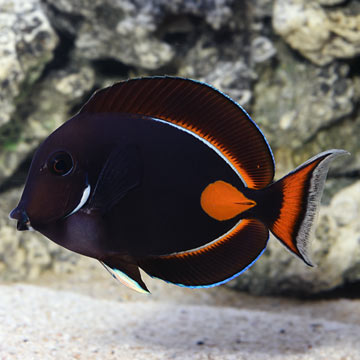
Achilles Tang (Acanthurus achilles) - Possibly one of the most difficult aquarium fish to keep, the Achilles Tang has no immunity to parasites and getting them most often brings about detrimental results, including death. They are most susceptible to Ich. In addition, Achilles Tangs require a strong waterflow. In nature they like to live in rocky areas where they are pounded by breakwater. Although Tangs will eat meaty foods along with the other fish in the aquarium, it is important that they are offered plenty of marine based seaweed and algae that will strengthen their immune system. In Closing As the expert only aquarist group expands due to increased knowledge by a growing number of people, there is the hope that more aquatic life will become available to the fishkeeping industry because there is a larger group of people who are able to care for them. By growing in experience and confidence, you, too, can look forward to achieving expert only status. Related Articles |
|
|


